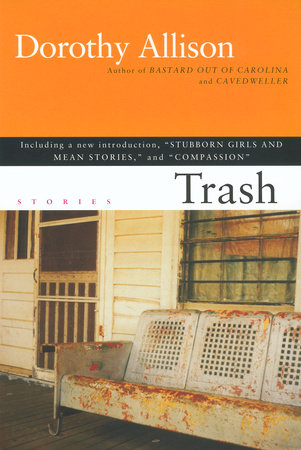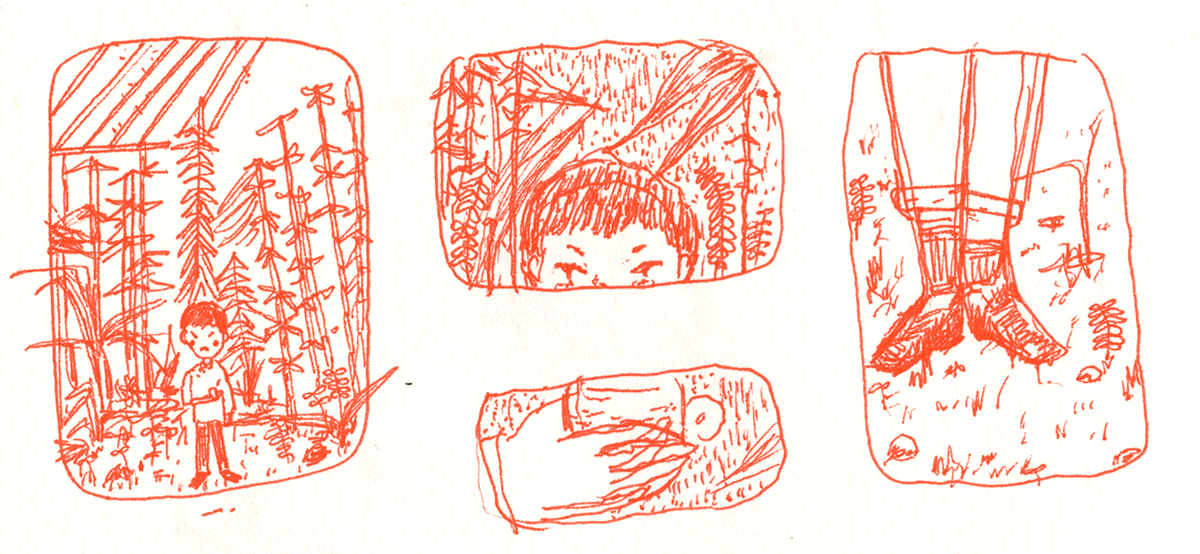 For as long as Flannery O’Connor has been read, America has been enamored with the stories of the South. It’s a world so foreign to the rest of America, ripe with salt marshes and the densest foliage. It is this ability to smother and obscure, to grow from even the barest soil, that makes the South so alluring. Beyond that, there is the concept of legacy, something many Southern writers take seriously. So much of Southern writing grapples with this idea of inheritance, of belonging to this mystery. At the same time, this tradition of storytelling has contributed, in some ways, to a false notion of a charming and quaint South, where simple people believe in ghosts and naïve romances abound. With this in mind, we are forced to take notice when a writer willingly takes part in this tradition, only to wield an ugly realism not in keeping with “Southern charm.” It is for this reason that Dorothy Allison’s “Trash” is an American classic.
For as long as Flannery O’Connor has been read, America has been enamored with the stories of the South. It’s a world so foreign to the rest of America, ripe with salt marshes and the densest foliage. It is this ability to smother and obscure, to grow from even the barest soil, that makes the South so alluring. Beyond that, there is the concept of legacy, something many Southern writers take seriously. So much of Southern writing grapples with this idea of inheritance, of belonging to this mystery. At the same time, this tradition of storytelling has contributed, in some ways, to a false notion of a charming and quaint South, where simple people believe in ghosts and naïve romances abound. With this in mind, we are forced to take notice when a writer willingly takes part in this tradition, only to wield an ugly realism not in keeping with “Southern charm.” It is for this reason that Dorothy Allison’s “Trash” is an American classic.
My mothers’ family, who are from all over the South, consist of dairy farmers, car mechanics, marines, and mine workers. Mom took us to West Virginia twice a year to see her grandmother who would regale us with stories of her husband who caught a man looking at her from his car at a red light, pulled him out of his open window and beat him half to death, calmly getting back in the car and waiting for the light to turn green; that same husband hiding canned beer in the freezer behind old fish to “mask the smell,” so my great-grandmother would never find it. I experienced some of the niceties of Southern storytellers, the long-drawled ramblings of aunts who ran brothels for confederate soldiers from hundreds of years ago, meanness and vengeance being well intended on each syllable of “Bless her heart.”
Allison as well is a Southern woman capable of conjuring the unspeakable in a casual tone. In fact “The Meanest Woman Ever Left Tennessee,” is a story she wrote about her grandmother, who she never met. Allison imagined her grandmother from the details she inherited, she imagined what she might’ve said, re-imagined how her grandmother died, and Allison put that on paper. She created a story that for all purposes, created a legacy for her grandmother.
So then, it only makes sense that I would love Dorothy Allison who writes that “The central fact of my life is that I was born in 1949 in Greenville, South Carolina, the bastard daughter of a white woman from a desperately poor family.” Dorothy Allison released her short-story collection “Trash” in the late ‘80s, published initially by Firebrand books, a feminist and lesbian publisher out of Ithaca, N.Y., it was subsequently purchased by Penguin and then published with new content by Plume in 2002. This collection was awarded Best Lesbian Small Press Book and Best Lesbian Fiction by the Lambda awards in 1989.
In the introduction, Allison talks about what it is to be outraged, white trash, the kind of poor American Ronald Reagan would’ve loved to broadcast on network television. Allison holds nothing back, or at least it appears that way, in her collection “Trash.” She tells stories of growing up a lesbian in a time where she couldn’t get a credit-card without a male co-signer, stories about being poor, stories about being a bastard. Allison pens stories that would make a classic Southern writer like Harper Lee blush, whose books ring of the sort of new-Southern democracy that shames white trash, trash who according to Allison are: “ … men who drank and couldn’t keep a job; women invariably pregnant before marriage, who quickly became worn, fat, and old from working too many hours and bearing too many children.”
The legacy Allison belongs to then, is the legacy of good stories that have tough female protagonists and tougher humor. One of the many amazing parts about Allison is that she understands what it takes to construct a good story. She understands point of view and musicality in sentences, she understands shame, that: “We knew ourselves despised.” She makes her family human, even if villainous, the reader understands the villain as a product of survival. In one of her stories, “River of Names,” Allison commemorates one of her many dead cousins’:
“Caught at eighteen and sent to prison, Jack came back seven years later blank-faced, understanding nothing. He married a quiet girl from out of town, had three babies in four years. Then Jack came home one night from the textile mill, carrying one of those big handles off the high-speed spindle machine. He used it to beat them all to death and went back to work in the morning.”
This story is a part of a list, where cousins slit their wrists after giving-up children, get used as human shields, are spun around by abusive elders as their limbs pop out of sockets. Abuse is a part of life, so is death, so is humor and Allison isn’t afraid to discuss any of it.
I had the privilege of seeing Dorothy Allison speak at the Chicago Humanities Festival in 2012, where she talked about many things: her part in the early-feminist movement; being a lesbian from the South (a concentration for many of the better stories in “Trash”); and most touchingly, how much she loves storytelling. Allison has the mystery and meanness that Southern women often do, but she holds nothing back. Her intention isn’t to be polite — it isn’t to guide you gently through a charmed childhood in the South — her intention is to tell you honest to God stories, it is to give voices to people she fears might be forgotten as time goes on, it is to make the memory of these people, of these times survive.
Not long ago, I heard from a friend that “Good literature isn’t in conversation with other good literature. Good literature in is in conversation with the world.” If these are our standards, and I hope that they are, then Dorothy Allison is one of the best storytellers in modern American literature.







